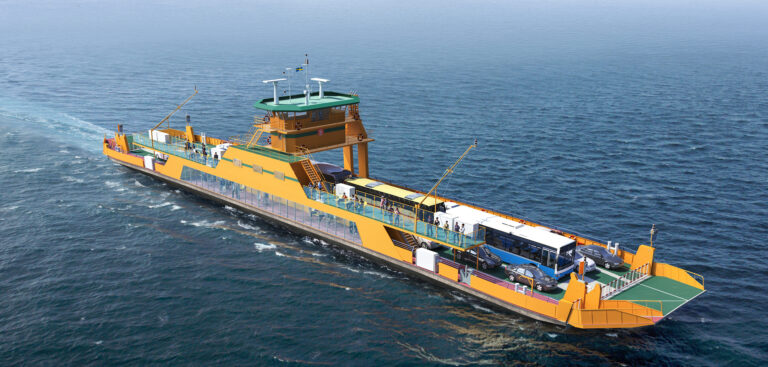The Swedish Transport Administration (Trafikverket) has contracted Holland Shipyards Group to deliver four autonomous, all-electric ferries. The ferries will sail with Level 2 autonomy and will be controlled from a remote-control center in Stockholm.
“We are extremely proud to be a part of this pioneering step in shipbuilding,” said Cor Hoogendoorn, director of Holland Shipyards Group.
The signed contract includes delivery of the ferries, auto-mooring facilities and charging stations, a simulator facility and a remote-control center. The tender covers the entire procurement: four ferries, eight auto-mooring facilities, four charging stations and other elements.
The ferries, measuring 86 x 14.24m, have a 60-car carrying capacity. They are intended to be Level 2 autonomous vessels (IMO), meaning that they are remotely monitored but have crew on board who can take control whenever necessary. Ferry crossings can be undertaken with just the push of a button. While mooring, the vessels will be charged by a shore charging facility within approximately four minutes.
The implementation of autonomous sailing technology is intended to increase passenger safety in the long run. When a fully operational system is in place, situations can be dealt with in an entirely consistent manner, reducing the risk of unexpected actions.
Reducing the dependency on crew requires that many systems be remotely operable and redundant so that if one method of operation fails, another remains available. This means that the level of inputs and outputs in the ship’s integrated automation system (IAS) will be high. The IAS will be mirrored in a remote-control center, giving on-shore personnel full access to all the ship’s vital functions.
The first ferry is scheduled to be delivered in the second half of 2024, with the other vessels arriving at regular intervals thereafter.



